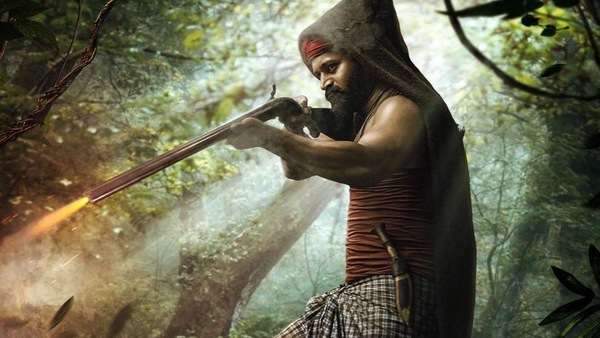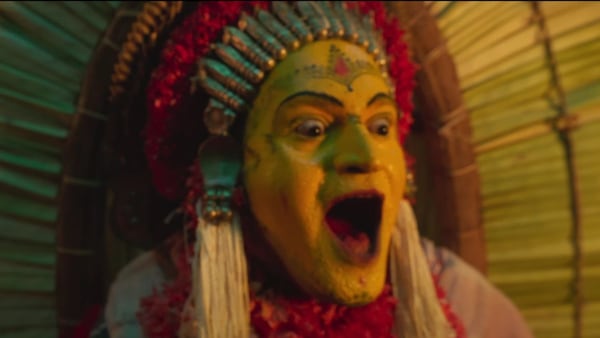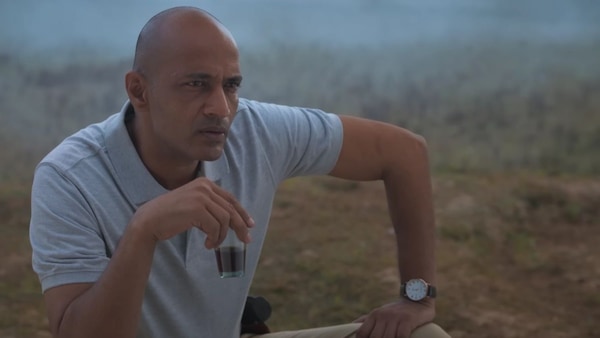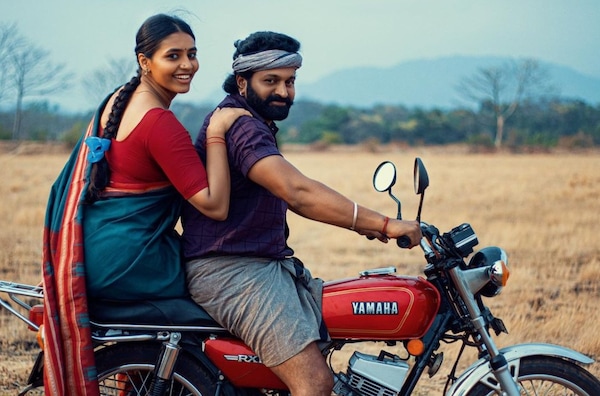Kantara review: Spotlight's firmly on Rishab Shetty in this glorious piece of story-telling
An intensely engaging story based on folklore from coastal Karnataka, Rishab Shetty's film is an absolute winner.

Last Updated: 10.19 AM, Sep 30, 2022
Story: A village on the fringes of a reserve forest in Kundapura forms the backdrop of this tale. Believed to have been a gift from the king many centuries ago, this land becomes a bone of contention for the government, as it is encroachment in a reserve forest area, as well as for the local landlord, who wants to reclaim what he believes to be rightfully his. The conflicts that arise between the villagers, the forest department, and the landlord form the crux of this tale.

Review: If there’s one thing that Rishab Shetty has established today with his film Kantara, it is that you can create goosebump-inducing cinematic experiences without unrealistic heroism elevation shots. You can do it even if your hot-headed lungi-clad hero finds simple pleasures in drinking freshly brewed arrack after winning a Kambala race.

Kantara may seem like a mundane tale of land grabbing and the politics behind it, but on closer inspection there is so much more. It’s a coming-of-age, transformational journey for Rishab’s character Shiva, going from being the alcohol guzzling, weed smoking angry young man to truly embracing his roots. Honestly, it is difficult writing about this film without giving away plot points, so I will try my best to refrain from that. Kantara, I believe, is a film that has to be experienced visually and not by piecing it together from a review or two. And I say this as someone who has absolutely no understanding of the culture and traditions of Kundapura. Rishab’s film had me glued to my seat from start to finish even though I could not comprehend the significance of Bhoothakola or Daivaradhane, as practised in the region. A subject so alien, yet one that I grew increasingly intrigued about as I was watching Kantara.

Rishab Shetty is, undoubtedly, the star of Kantara. As Shiva, he puts on a riveting performance that was also physically challenging, but is made to look absolutely effortless. This is a role he’d written for himself, he’d told me earlier. What a good call that was for the filmmaker, who had not played the lead in his earlier directorial ventures. Come to think of it, it is next to impossible to imagine anyone but him in that role. But Rishab’s absolute masterstroke is in the ensemble cast he assembled, whether it is Kishore, Sapthami Gowda, Pramod Shetty, Prakash Tumminad, or Achyuth Kumar. Each one is brilliant in well-sketched characters written by Rishab. And even though I had to rely on the subtitles for portions of the Tulu dialogues (which, interestingly, also had Kannada subtitles), the gist was conveyed well.
Ajaneesh Loknath, you are a magician with music. I am no expert, but the tunes he’s put together as songs and background score are absolutely mesmerising and pleasant to the ear. Please release the full soundtrack of the film soon. And last, but definitely not the least, Aravind S Kashyap and his wizardry with the camera. Rishab can take credit for writing the world of Kantara, but showing it to us as a visual spectacle is Aravind and his lens.
Verdict: Rishab’s biggest victory, I believe, is that he’s been able to transport his audiences to this tiny hamlet and be involved in everything going on there. Taking a rooted tale and presenting it to a larger audience is a gamble; not everyone may take a shine to it. But if you at least manage to create an iota of interest in the subject among this audience, it’s a job well done. Kantara may not be perfect on all counts, but it will go down in history as a film that will be remembered for all the right reasons.

 Premium
Premium